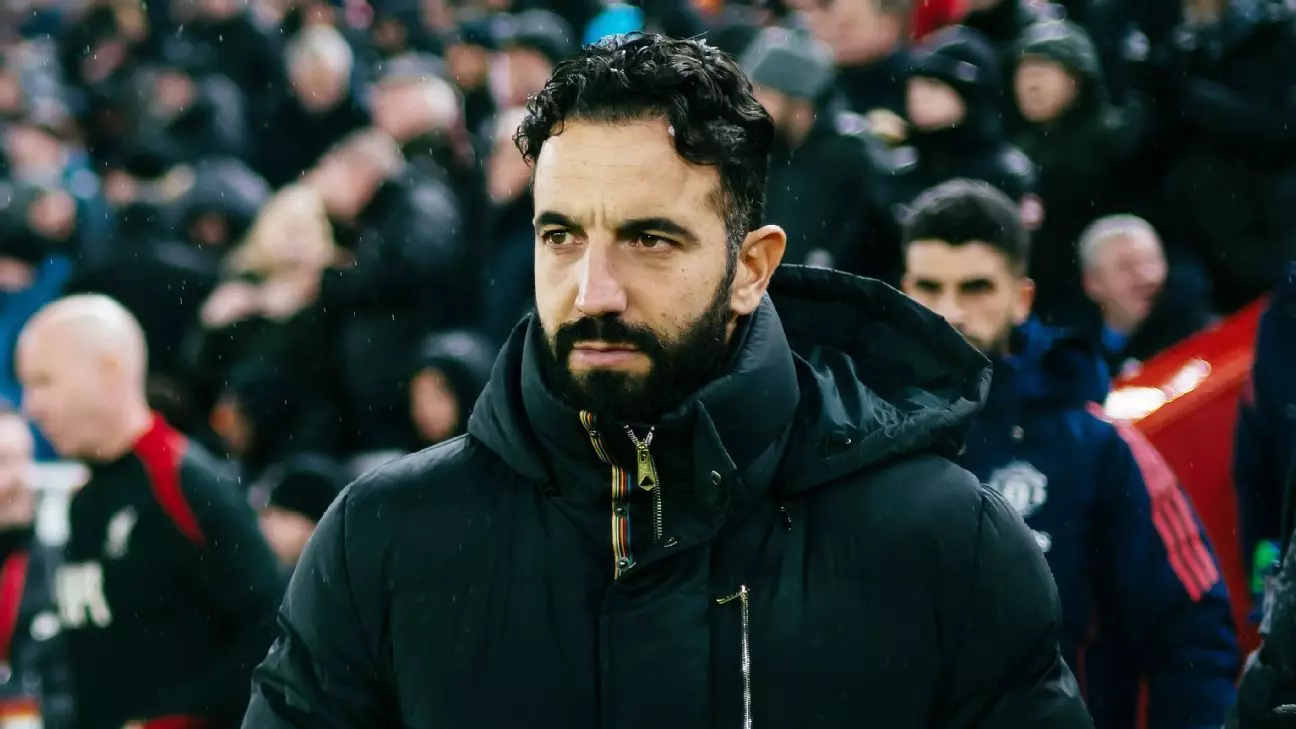Ruben Amorim’s arrival at Manchester United has been nothing short of a whirlwind, weaving together both intense turmoil and moments of hope. Stepping into the role in November following Erik ten Hag’s dismissal, Amorim inherited a club steeped in tradition yet clouded by underperformance, with the team languishing in 14th place in the Premier League standings. This context amplifies the weight of Amorim’s mission to revive a storied franchise struggling to regain its lost swagger. As he himself admits, these initial months have proven to be the most challenging of his career, yet also the most unique and rewarding.
The start was rocky; his record of six defeats in the first eleven league games set a grim precedent, marking the worst initiation for any United manager in91 years. This staggering statistic casts a long shadow over Amorim’s ambitions, raising questions about the challenges of managing a high-profile team struggling with low morale and dwindling confidence.
After a disheartening 3-1 defeat against Brighton & Hove Albion, Amorim unleashed a candid evaluation of his squad, labeling them “the worst, maybe, in the history of Manchester United.” Such remarks resonate deeply within a club that has built its legacy on winning and excellence. However, this admission also exposes the pressures inherent in high-stakes football, where a single defeat can invoke sweeping changes in perception and fan sentiment.
Regret quickly followed as Amorim appeared to navigate the complexities of media scrutiny. His team’s subsequent wins, emphasizing resilience, spotlighted his dual role as a motivator and a tactician. In the midst of fluctuating form, his insistence on focusing not just on standings but on team performance highlights a critical perspective: the importance of a defined and strategic roadmap is paramount, particularly when challenging periods loom.
A standout moment was Amorim’s decision to publicly criticize Marcus Rashford, a decision that stirred considerable commentary. The manager expressed his willingness to risk his starting players’ feelings in favor of demanding accountability and effort. His remarks about choosing a seasoned goalkeeper over a player who isn’t meeting expectations underscore a clear vision—team success hinges upon collective commitment. Amorim’s unwavering stance reflects the principles of discipline and high standards that resonate throughout the footballing world.
Additionally, his approach underlines a philosophical divide regarding how managers can implement change. While some might favor a gentler touch, Amorim appears to embrace a no-nonsense strategy. His willingness to confront Rashford directly could serve as a precursor for developing a culture of excellence, albeit at the potential cost of individual player relations.
Amorim’s comments regarding Casemiro further exemplify his evolving tactical mindset. The Brazilian midfielder, a powerhouse in his prime, finds himself sidelined as Amorim indicates a need for players who can thrive in a high-intensity environment. This revelation speaks volumes about how Amorim values attributes such as speed and physicality over established reputation.
By recognizing Casemiro’s shifts in contribution, Amorim demonstrates a nuanced understanding of football’s tactical landscape. While the veteran’s experience is undeniably valuable, the realities of the modern game demand fresh strategies and adaptable personnel. This means finding that balance between historical prowess and contemporary requirements—a complex task that any manager must navigate judiciously.
Looking ahead, the unraveling narrative at Manchester United under Amorim reflects an ongoing journey filled with obstacles, learning moments, and the potential for revival. The path is laden with unpredictability; yet, the lessons learned in pressure are shaping a new identity for Amorim and his team. While a resounding turnaround won’t happen overnight, the foundation being laid may indeed signal a reclamation of the club’s lost prestige.
As the season unfolds, Amorim’s ability to galvanize his players and build resilience will be put to the test. Ultimately, whether this intense and transformative period culminates in restoration or further disappointment will depend on the manager’s vision, adaptability, and unwavering commitment to excellence. In a realm where success is often measured in trophies, Amorim stands at a crucial juncture—a promising, yet challenging chapter lies ahead at Manchester United.


Leave a Reply